What drives innovation and growth? Supportive comments or complete honesty? If you’re a high growth tech business, it’s kinship. Anna-Lisa Wesley, Baringa alumnus, and Pete Blake both of startup advisory Sapphire & Steel share their views on the economics of kindness.
This article is part of our series on the Economics of Kindness. Find out how we're changing the way that business sees kindness in the workplace.
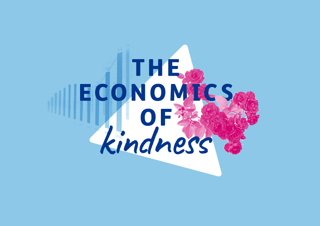
The scene
High growth technology businesses thrive on a daring combination of wild ambition and brutal pragmatism. When ambition overwhelms pragmatism, founding teams can find themselves on a lonely path to utopia. When the opposite is true – the business can stutter into perfection paralysis. Founders know that if you get the balance right, you find momentum. But too often this balance is never found.
To navigate this challenging terrain, founders need allies who can provide the right kind of critical friendship. In our experience of working with 100s of startups and scaleups a year, we see that when founders secure this critical friendship, their business can be bolder, faster and in more control. They find their edge.
Critical friendship leans on the Old English 'kyndnes' – which speaks to 'kin', of being of family, culture or relation. They don’t need the type of kindness characterised as 'friendliness', 'consideration', 'politeness'. This kindness can kill, but kinship fuels growth.
"They don’t need the type of kindness characterised as 'friendliness', 'consideration', 'politeness'."
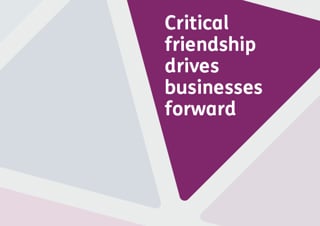
Finding the edge
We observe time and again that critical business insights can be found through open and honest conversation with those that share a kinship of ambition. In this way, founders establish the kind of critical feedback loops that drive the business forward.
Feedback loops for product development are well understood as a way of helping establish product market fit. But we note that the same applies across every aspect of the business; in the market, within the executive team, and in the board of directors.
Three examples:
In the market
In the market
"The market pulls product out of the startup" – Marc Andreessen, Silicon Valley venture capitalist
Startups find their product edge by being in their market, leading open conversations with customers and other players in their ecosystem to tap into a kinship of ambition, and critical understanding of the practical barriers to success.
In this way they can begin to both understand more about the value they can add to their customers, and also get much clearer on the specific and focused role they can play.
Yet, according to the British Business Bank’s 'Alone, together: Entrepreneurship and diversity in the UK' report, "...only 19% of aspiring entrepreneurs tested their idea with potential customers."
In our experience, startups that don’t spend critical time in the market fail to get the feedback they need, lose momentum and are prone to fail.
In their executive team
In their executive team
"Loosely coupled, tightly aligned squads... Alignment enables autonomy" – Javier Moscardó, engineering manager at Spotify
Startups find their operational edge by building cross-functional delivery capability orientated around a kinship of commercial goals. By working cross-functionally, it’s well understood that teams are able to reach a flow state of delivery, with more accountability to their market.
In our experience, startups that don’t create aligned cross-functional teams, driven by open dialogue sink to 'professionally courteous' silos. These dysfunctional teams lose momentum and risk failure.
In their boards
In their boards
"Board members with different backgrounds, experiences and networks, help accelerate success." – Navin Chadda, Forbes Councils
Startups find their strategic edge by building diverse boards that bring independent and critical thinking, rooted in a kinship of market impact. By working with a group of independent thinkers, founders keep aligned to their ambition, de-risk their investment proposition, and build resilience from top to bottom.
In our experience, startups who don’t build diverse boards that bring independent thinking succumb to group think, blinkering and sub-standard risk mitigation.
To summarise, a lack of kinship in the market, executive team and on the board hinders open and honest conversation and this damages momentum.
"A lack of kinship in the market, executive team and on the board hinders open and honest conversation and this damages momentum."
The great kindness fail
The need for feedback is clear, and no-one would debate that open and honest conversation will unlock it. So what goes wrong? And how can kindness be to blame?
Feedback is a value exchange between two parties. Whether that exchange is happening in the market between a founder and their customer, between two leaders in an executive or within a board, what’s important is that one can reach the other, hear the other, understand and come out of the exchange with more insight.
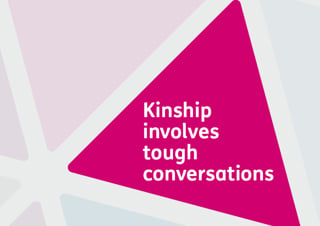
Yet what founders too often experience in these contexts is that kindness characterised by friendliness, consideration, politeness. And whilst this might avoid difficult conversations, it can be hugely detrimental to the business, verging on irresponsible.
In high growth businesses, we see this happening unintentionally. If asked about a product, or asked for feedback on a business initiative or on an investor deck, the customer, the executive, the NED will reach for this polite kindness. They see issues but find it hard to offer criticism. It can stem from a lack of confidence in their own observations, or a fear of upsetting the apple-cart, or scarcity of stewardship about the ultimate outcome.
This type of kindness kills startups. It wastes time which is the one resource a startup never has. It would be better to say nothing at all.
The future relies on going back to the kindness of the past
Kinship tells a different tale. Kinship speaks of being on the same side of the table, operating in a tight unit. Kinship is the trust established in a family group.
With customers – together in kinship and motivated by a common goal; startups and their customers can forge partnerships that drive huge value for their industry.
In executive teams – together in kinship and motivated by a common goal; executive teams can reach the kind of operational agility that drives huge gains for their customer.
On boards – together in kinship and motivated by a common goal; boards can avoid group-think, and oversee the kind of sustainable growth that drives huge value for shareholders.
Kindness kills. Kinship fuels growth.
About the authors
Anna-Lisa Wesley is an advisor, NED and coach to Clean Tech, FinTech and Health Tech startup and scaleup leaders. Pete Blake is and advisor, mentor, NED and seed investor. He works with founders to build clean-tech startups and scale-ups.
Anna-Lisa Wesley and Pete Blake are founders and directors of start-up advisory Sapphire & Steel. Together they work with mission-minded founders as they scale their technology from early stage to Series B.
Related Insights
Trending content in this series
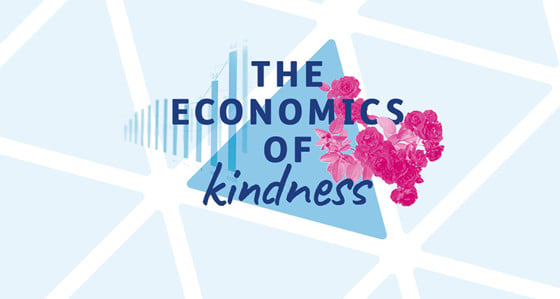
Introducing the Economics of Kindness
At Baringa we’re convinced that, no matter the macroeconomic backdrop, kindness in business really does pay. That’s why we’re taking this opportunity to explore the economics of kindness across four pillars: people, business, leadership and investors.
Read more
People – planet – profit, in that order
The notion of a ‘triple’ bottom line – people first, then planet, then profit – is reshaping how organisations around the world do business. They’re bringing corporate kindness to the fore as we enter a new type of economy, and the businesses that organise themselves in this way will be the ones that succeed.
Read more
Redefining kindness in the workplace
Corporate kindness is all about the impact an organisation has on the world, engaging in responsible practices that benefit their customers, employees, and the communities they operate in.
Read more
Bringing kindness back to the top of the leadership agenda
Should kindness be back at the top of the leadership agenda? Managing Partner Adrian Bettridge discusses how when we lead with kindness, we generate lasting success for ourselves, our clients and our businesses.
Read more
It’s not easy to be a kind leader
Can leaders be kind all of the time? What gets in the way? Ian Peters reflects on the challenges and trade-offs of trying to be kind to all stakeholders.
Read more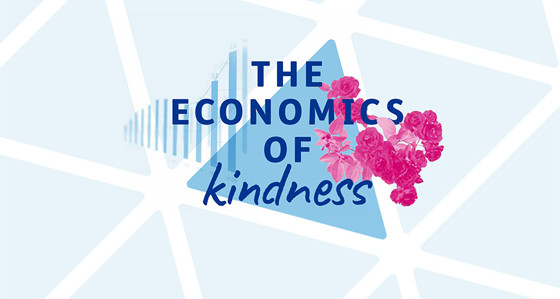
Our Economics of Kindness journey: the story so far
What have we learned about kindness in business and in our public organisations? Does it pay? And if so, how?
Read more